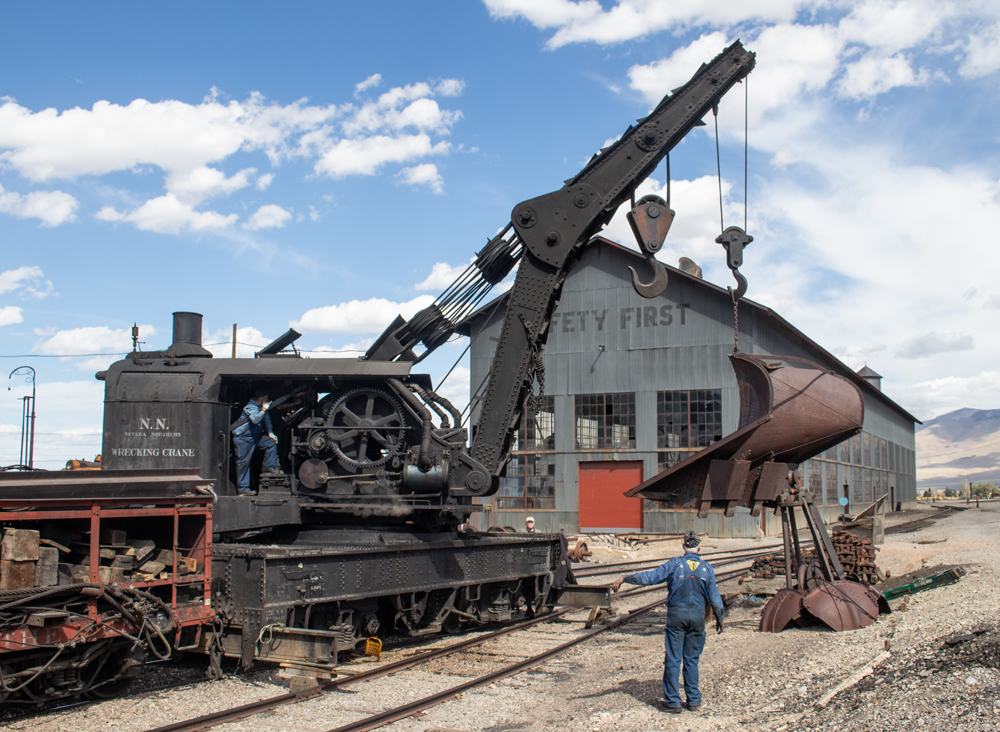
Wrecking derricks were once the kings of maintenance-of-way equipment, used mainly to move derailed rolling stock but also for such other heavy-lifting duties as bridge replacements. Today, when a derailment needs to be cleaned up, the work is often done by private contractors using bulldozer-like machines delivered to the wreck site by highway. But fifty […]
Read More…
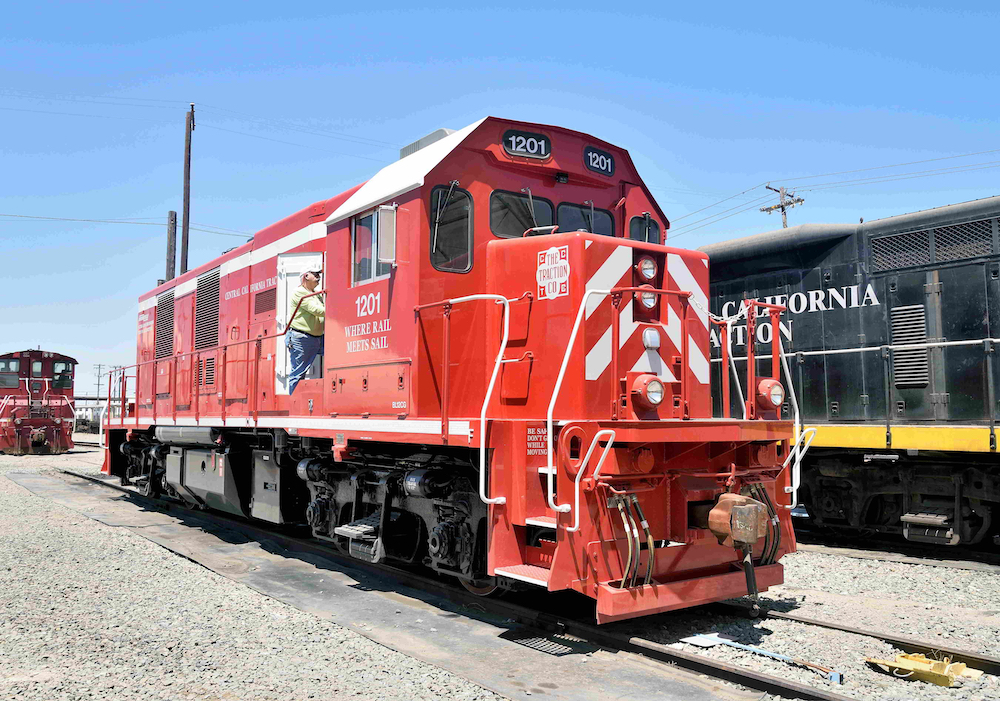
Rare genset diesel locomotives South of Sacramento and north of Modesto lies Stockton, Calif., home to Central California Traction Company and its rare genset diesel locomotives. Built by Brookville Equipment Corp. of Pennsylvania in early 2015, the units, designated BL12CG, are powered by a pair of Cummins prime movers connected to EMD D78 traction motors […]
Read More…
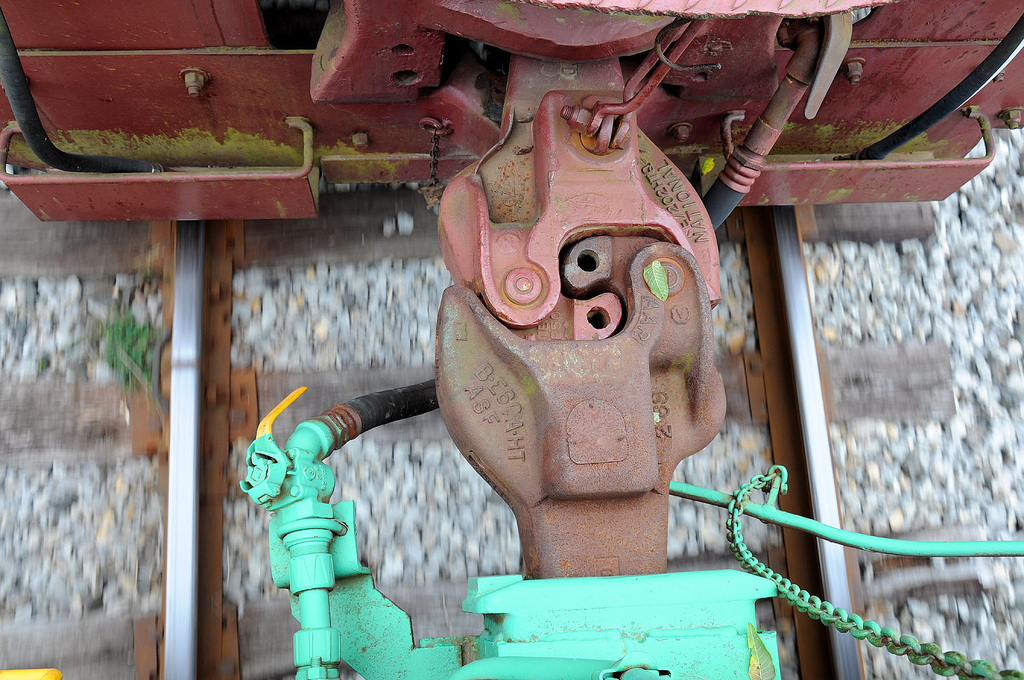
The next time you watch a quartet of six-motor diesels go grinding past with an 11,000-ton unit coal train, consider that all that horsepower is being transmitted through the train by a mere 11-inch-high chunk of steel at the end of each car. This simple little device – the “knuckle” – is the key part […]
Read More…
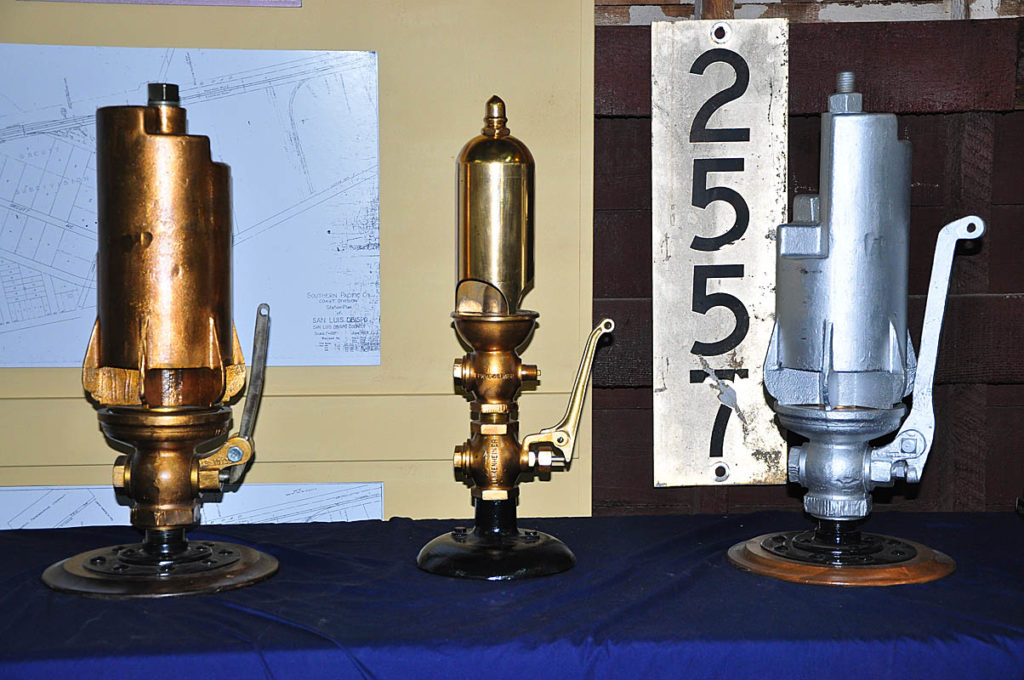
Before radio communication came into wide use in the 1960s, a locomotive’s whistle was an important tool in conveying information to other employees, both on and off the train, and many signals were on the books. The General Code Of Operating Rules, used by many railroads, contains the following list of whistle signals and their […]
Read More…
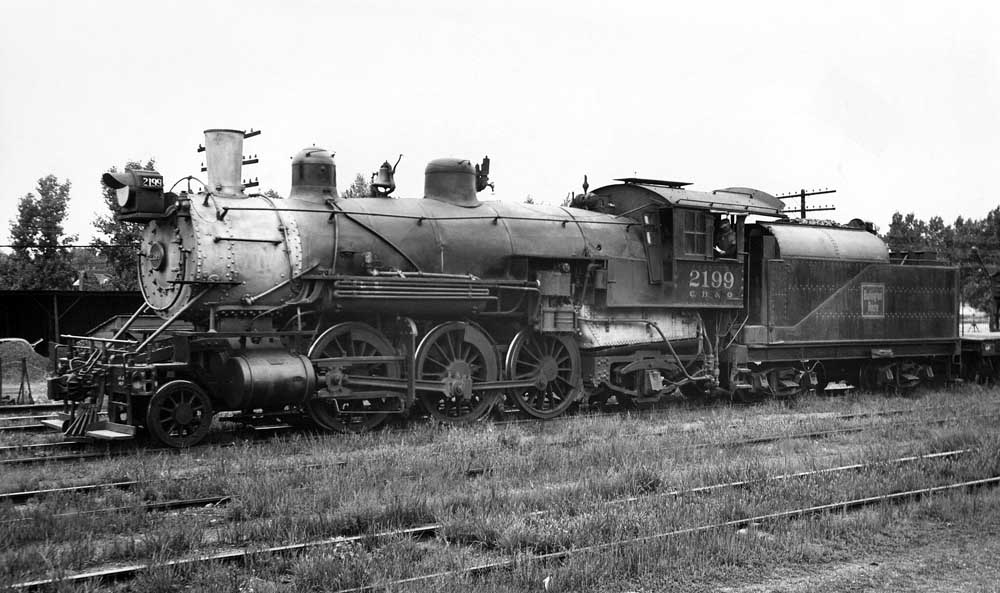
Unsurprisingly, the largest 2-6-2 Prairie fleet operated on the U.S. prairies with the railroad that originated the type. As the railroad industry approached the late 19th century, it became obvious that what had been considered the preferred locomotive — the 4-4-0 American — could no longer provide the horsepower nor the speed necessary […]
Read More…
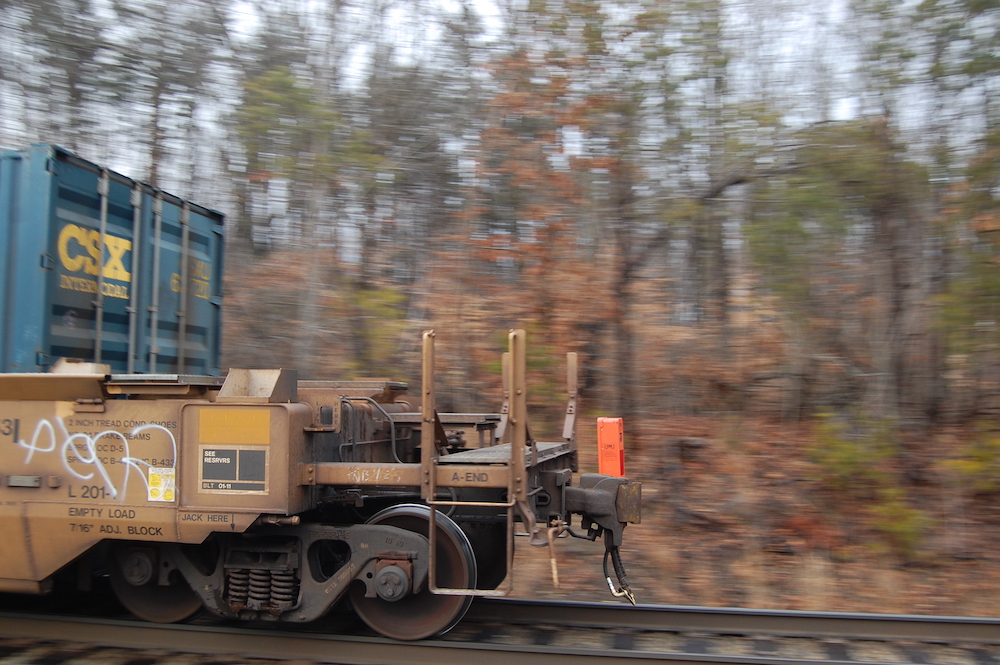
End-of-train devices replaced cabooses that, not so long ago, train watchers almost everywhere could count on as a final point of interest at the end of each freight train. The distinctive little cars housed crew members who would observe the cars ahead for defects, process the train’s paperwork, operate track switches, monitor the air-brake system […]
Read More…
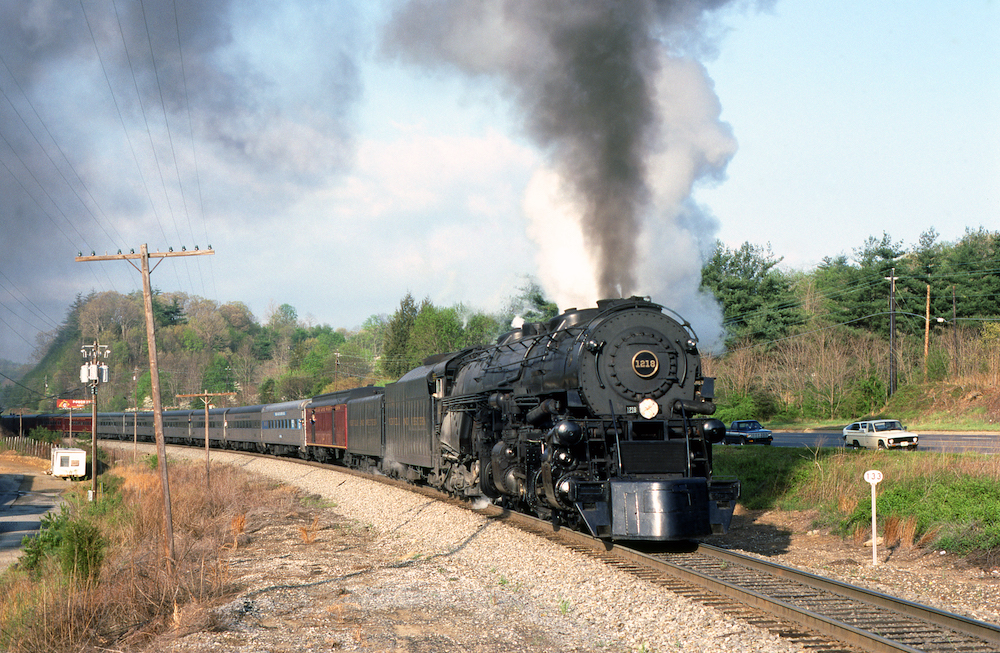
Steam excursions in the United States are like taking center stage. Star-studded locomotives arrived with some staying while others received curtain calls. Of those that have taken their final bow, here are five former U.S. steam excursion locomotives that left an impact. Grand Trunk Western No. 5629 Excursion service 1959-1973: The class K-4a, 4-6-2 No. […]
Read More…
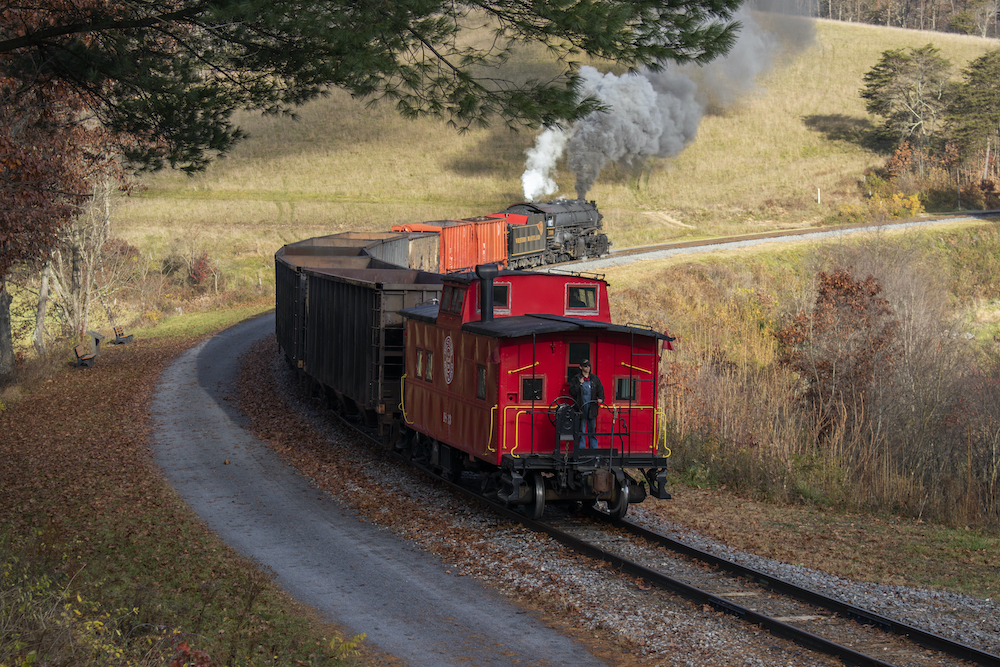
Given a choice, railroads will always follow a straight, level path. Trains use less energy, speeds are higher, and there’s less wear on equipment when railroads can build on an arrow-straight line. But land rises and falls, obstacles must be avoided, and this requires grades to compensate for changes in elevation and curves to reorient […]
Read More…
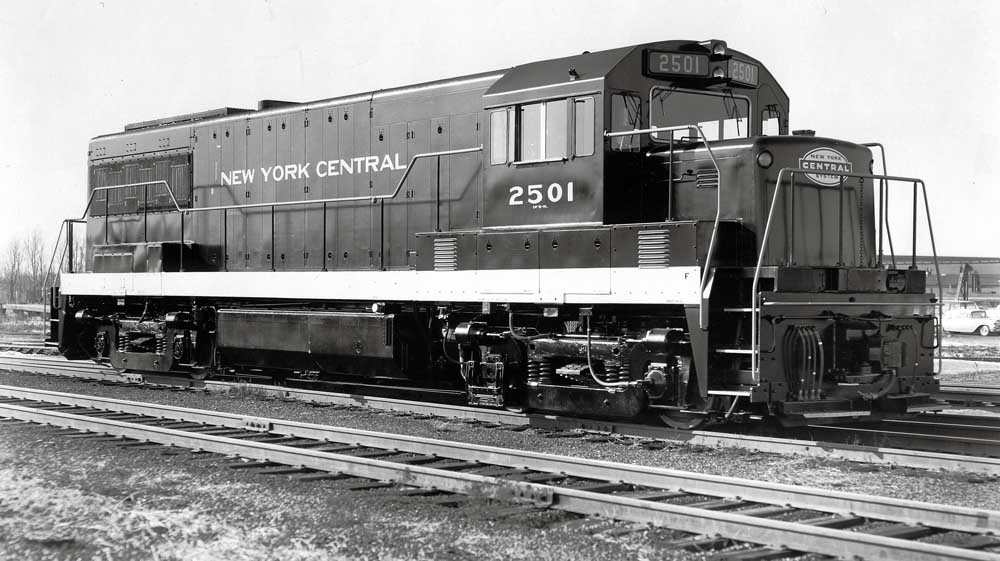
The best-selling early GE diesel locomotives are familiar to fans of mid-century diesel power. General Electric has a long relationship with railroad motive power. The company began building heavy electric locomotives in the 1890s, furnished traction motors and electrical equipment to other builders through the 1950s, and eventually become the dominant diesel-electric locomotive manufacturer […]
Read More…
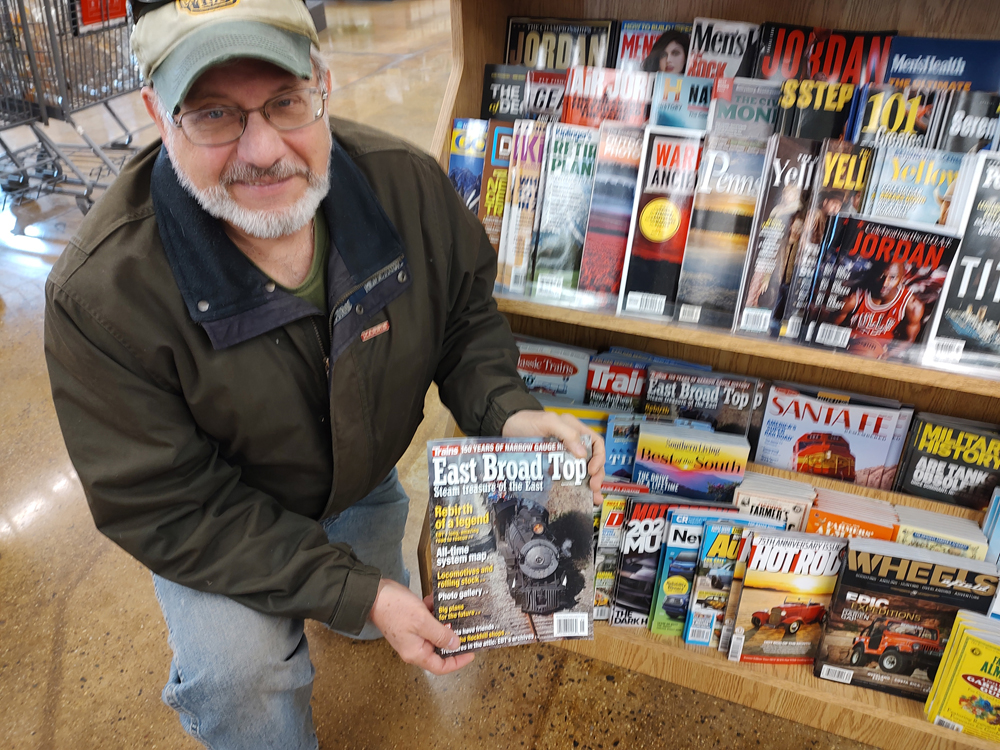
What was your first byline in Trains? Dan Cupper: It was a 10-page cover feature for January 1984, detailing Conrail’s E8-model passenger locomotive No. 4022, used for powering the road’s office-car fleet on inspection tours. At the time, I was working as a reporter for the Harrisburg (Pa.) Patriot-News newspapers and had written a full-page […]
Read More…
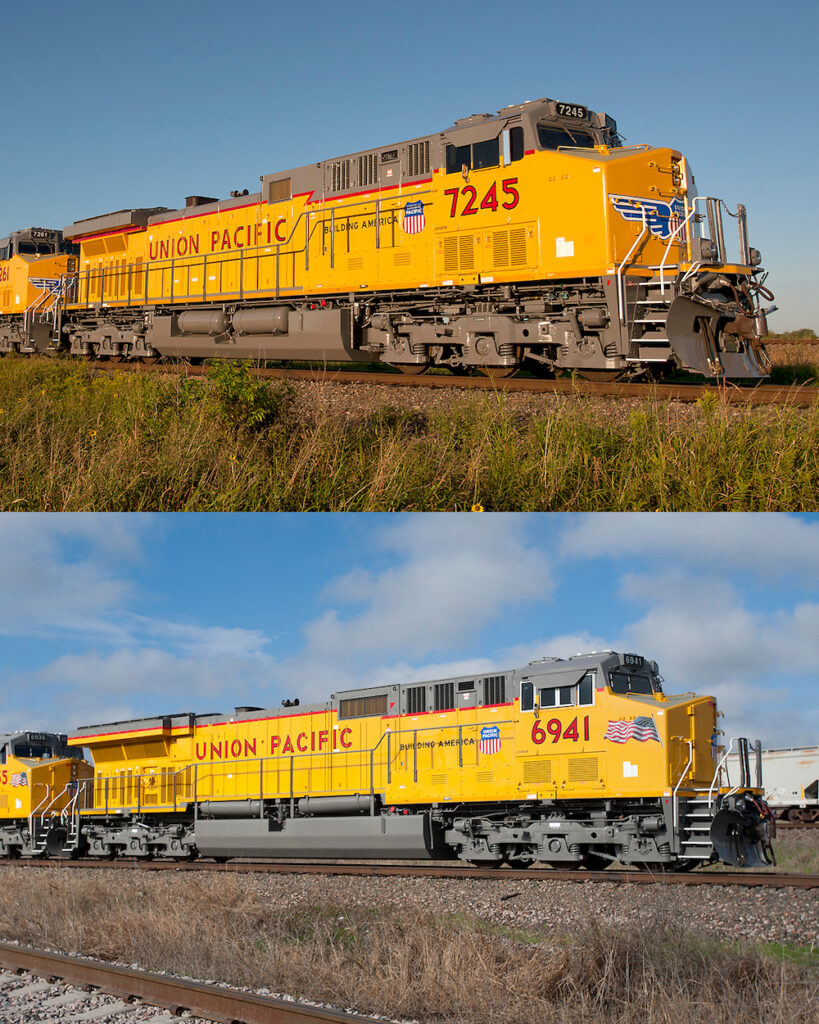
Union Pacific is in the final stage of modifying the paint scheme of its locomotive fleet. Announced in July 2022, company employees at Jenks Locomotive Shop in North Little Rock, Arkansas, created the new design which relocated the flag logo from the long hood to a smaller version placed on the side of the nose, […]
Read More…
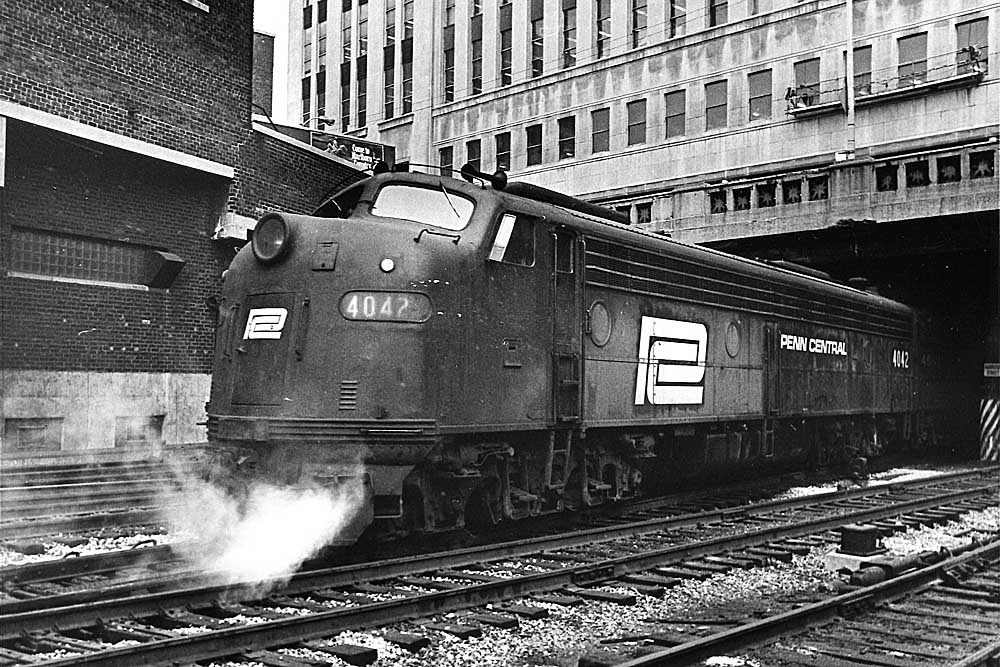
Penn Central locomotives were varied from Alco and Baldwin to EMD and General Electric. There were electrics, too, on the Northeast Corridor and branches between New Haven, Conn., and Alexandria, Va. PC inherited its diesel and electric locomotives from components New York Central; and New York, New Haven & Hartford; and Pennsylvania Railroad. […]
Read More…












